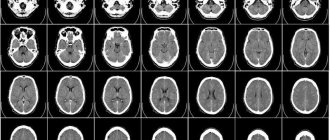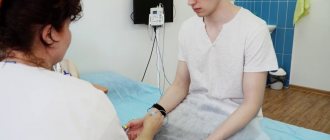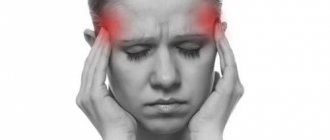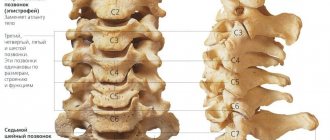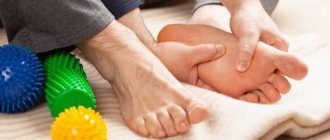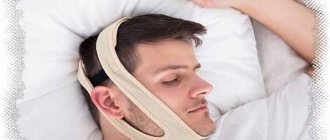The prevalence of sleep disorders in recent years has become so widespread that it has led to the creation of a completely new direction in therapy - the so-called sleep medicine, the task of which is to study the etiological factors, pathophysiological mechanisms and methods of treating insomnia. According to the World Health Organization, every third person who consults a therapist complains of long-term (more than 4 weeks) difficulties falling asleep, frequent awakenings at night, daytime sleepiness and other classic manifestations of chronic insomnia . Doctors at the Leto mental health center practice fundamentally new approaches to treating this disease. We are trying to move away from the widespread practice of widespread and often uncontrolled use of sleeping pills. As an alternative we offer a course of cognitive behavioral psychotherapy, which, unlike drug treatment, is completely safe, has no contraindications and, naturally, does not cause any adverse reactions.
Kinds
There are the following types of this disease:
- Primary insomnia. It occurs when sleep problems are not caused by illness or a specific situation.
- Secondary view. Formed against the background of the formation of some disease. This could be oncology, injury, heartburn, asthma, arthritis, or depression. The use of alcoholic beverages or medications can also affect the formation of such a problem.
Based on duration and frequency, the following types of insomnia are distinguished:
- Chronic. Regular problems that last for several months, or occur periodically every 3-4 months for many years.
- Spicy. This is a short-term sleep disorder that can last from 1 night to several weeks.
Diagnosis of insomnia
Diagnostic measures are necessary to confirm the diagnosis and identify the cause of insomnia.
Anamnesis collection.
Sometimes a survey helps to identify hidden psychological reasons.
Inspection.
Assessment of appearance, blood pressure, pulse, skin and sclera condition.
Laboratory tests of blood and urine.
Polysomnography
— a comprehensive examination of a person during sleep.
You cannot diagnose yourself and choose a remedy for insomnia on your own. In addition to the help of a therapist, you may need to consult a neurologist, psychologist or psychotherapist.
Causes
Various factors can provoke the formation of the disease, for example:
- serious physical and mental stress;
- heart diseases;
- disruption of the endocrine system;
- night work;
- change in the rhythm of life;
- gastrointestinal diseases;
- frequent air travel;
- diseases of the nervous system;
- emotional experiences;
- stress.
A serious effect on the nervous system is indicated by long-term use of sleeping pills, which can ultimately cause insomnia. In the case of prolonged use of such medications, the excitability of the nervous system only increases, which is why a person cannot sleep.
Symptoms
Chronic insomnia is diagnosed when one or more of the following symptoms are present:
- early awakenings (without an alarm), due to which sleep time is reduced to 6 hours or less;
- it takes more than half an hour to fall asleep;
- waking up at night (total duration of wakefulness is 30 minutes or more);
- daytime drowsiness, weakness, fatigue.
Over time, long-term sleep disturbances lead to:
- headaches;
- irritability, anger, sudden mood swings;
- apathy, depression, reluctance to engage in work or everyday activities;
- indifferent attitude towards one's own appearance and health.
Treatment methods
If a disease interferes with a normal lifestyle and causes discomfort, it must be treated. The recovery method must be determined by the doctor. If the cause of the problem is a minor factor, it is enough to change the daily schedule and stick to it for several weeks. If this does not help, the specialist will select special medications. You should not use them without a doctor’s prescription, as you may harm your own body.
In order to get rid of chronic insomnia, sometimes there are not enough drugs, you need to eliminate the causes and factors that could cause it. Therefore, some doctors prescribe a series of physical exercises and massages in parallel with the main treatment. In any case, it is important to listen to the recommendations of your doctor and follow them regularly.
Insomnia (insomnia) - symptoms and treatment
Sleep hygiene and lifestyle changes are usually the first step in treating insomnia.[3][5] Sleep hygiene includes stabilizing sleep times, exposure to sunlight, a quiet, dark room, and regular exercise.[5] Cognitive behavioral therapy may be used in conjunction with this type of treatment.[4][9]
It is important to identify or rule out medical and psychological causes before deciding to treat insomnia. Most doctors do not recommend relying on sleeping pills because they do not see any long-term benefit in them.
What helps with insomnia
Non-drug treatment strategies for insomnia provide long-term improvements in insomnia and are recommended as first-line treatment and long-term sleep management strategies.
Music may improve the condition of adult insomnia patients.[46] EEG-feedback training has proven effective in treating insomnia, improving the duration and quality of sleep.[47] Self-help therapy (defined as psychological therapy that can be developed independently) can improve sleep quality in adult patients with insomnia to a small to moderate extent.[48]
The Paradoxical Intention Technique is a cognitive reframing technique (that can change perceptions) in which the insomniac makes an effort to stay awake instead of trying to fall asleep at night (essentially struggling to fall asleep). One theory that explains the effectiveness of this method is that the person voluntarily resists the urge to fall asleep, thereby relieving the performance anxiety that arises from the body's need or demand to sleep—a passive action. This method is indicated to increase sleep drive and reduce sleep anxiety, as well as to reduce subjective assessment of sleep onset latency.[49]
Sleeping pills
Many people with insomnia use sleeping pills and other sedatives. Such medications are prescribed in more than 95% of cases.
Antidepressants
Insomnia is a common symptom of depression, so the use of antidepressants is an effective treatment for insomnia, regardless of whether the illness is related to depression. While all antidepressants help regulate sleep, some (such as amitriptyline, doxepin, mirtazapine, trazodone) are prescribed specifically for the treatment of insomnia because they can provide an immediate calming effect.[52] Amitriptyline and doxepin have antihistamine, anticholinergic, and antiadrenergic properties that contribute to both their therapeutic effects and protection against side effects. Mirtazapine reduces sleep latency (the time it takes to fall asleep), improves sleep efficiency, and increases the total amount of time spent sleeping in people with depression and insomnia.[53][54]
Agomelatine, a melatonergic antidepressant that improves sleep and does not cause daytime sleepiness[56], is licensed in the European Union[58] and TGA Australia.[55] After testing in the United States, its development for use was discontinued in October 2011[57] by Novartis, which acquired the rights to market it from the European pharmaceutical company Servier.[59]
Treatment of insomnia in children
When treating insomnia, it is important to establish the correct sleep and wakefulness routine - the younger the child, the more important the daily routine is. Psychotropic drugs are rarely used in the treatment of insomnia in children.
Herbal remedies that help with insomnia
Herbal preparations are best used in the form of teas, infusions and decoctions. Soothing herbal mixtures with chamomile, oregano, St. John's wort, lemon balm, mint, lavender, valerian, and motherwort are suitable for this. You should buy them at a pharmacy; they are available without a prescription.
Physiotherapy
Traditional procedures that are carried out in specialized physiotherapy rooms: electrosleep, electrophoresis with a solution of drugs, darsonvalization and hydromassage. These methods are popular in Russia, but there is not enough research confirming their effectiveness for treating insomnia.
At home you can use:
- water procedures - warm shower and bath with soothing and relaxing aromatic substances;
- warming procedures - dry heat on the feet, hands and collar area;
- inhalation of aromatic oils with a calming effect.
To normalize night sleep, a leisurely evening walk, reading books, listening to audio books or music, meditation and leisurely spiritual conversation are useful.
Treatment results
Chronic insomnia can last more than several years, as a result of which the patient may face problems such as:
- excess weight;
- heart disease;
- gastritis;
- diabetes;
- high blood pressure;
- mental illness.
Insomnia should be treated and it is important not to do it yourself. As a result of a competent recovery program, within a few days you will be able to forget about the problem and sleep at night again. The main thing is to complete the course of treatment completely and move on to the rehabilitation process.
What should a healthy sleep look like?
Healthy human sleep should last an average of 7-8 hours. Normally, it occurs at night. Ideally, a person should go to bed between 10 pm and 11 pm and fall asleep within 3-5 minutes. This is the best time for healthy sleep. With the normal functioning of all body systems, an adult should not wake up for 7-8 hours; awakening occurs only in the morning.
Unfortunately, this does not always happen. Many people try to fall asleep at night, but this does not happen. Perhaps the cause of sleep disturbance is severe emotional fatigue, stress, disruption of the rhythm of sleep and wakefulness due to time zone changes. A person who has not been able to fall asleep at the required hours is forced to get up without sleep. As a result, his concentration decreases, productivity drops, and the risk of injury and poor decision-making increases. Chronic insomnia affects the entire human body, causing irritability, nervousness, malaise, headaches, memory impairment, and decreased immunity.
Rehabilitation and lifestyle restoration
Did you manage to get rid of insomnia with the help of competent treatment? In this case, it is important to regularly carry out prevention and follow a daily routine. During rehabilitation, it is better to go to a sanatorium or spend this time in a special medical facility under the supervision of specialists. You should change your lifestyle:
- give up alcohol, drugs, smoking;
- go to bed at the same time every day;
- do exercises or go to the gym;
- do massages;
- often relax in the fresh air.
Provide all conditions for a restful sleep; the room should be dark and ventilated, the air in it should not be too warm. Before going to the “kingdom of Morpheus,” read a book and take a shower.
Prevention
Certain preventive measures can help prevent a critical condition:
- Set a clear bedtime and stick to it strictly. The optimal time for falling asleep is considered to be from 22-00 to 23-00;
- Avoid drinking caffeine and other energy drinks after 8 pm;
- Create comfort in the sleep and rest area;
- Be sure to do morning exercises and lead an active lifestyle during daylight hours;
- Don't overeat in the afternoon.
If you adhere to all the recommendations listed, then you will not experience insomnia, and experienced specialists at our clinic will tell you what to do at the first signs of it. To make an appointment with a neurologist in our clinic for sleep disorders, call or contact us through the feedback form. The operator will make an appointment with a specialist at your earliest convenience. We care about your health!
FIND OUT PRICES
Where to go if a problem arises?
The Kuntsevo Treatment and Rehabilitation Center is now particularly popular among patients with various problems, including insomnia. Experienced doctors work here, there is a diagnostic base, and special techniques are used for quick rehabilitation. Thanks to this, the patient, without leaving the medical facility, can carry out diagnostics, undergo the necessary specialists and even begin recovery.
The treatment and rehabilitation center employs leading city specialists, doctors and candidates of medical sciences. All of them have many years of experience, so you can be completely confident in the professionalism of the medical center’s staff. The clinic is equipped with modern technology that facilitates rapid diagnosis and treatment of pathologies.
Prices
| Name of service | Cost of services, rub. | |
| Appointment (examination, consultation) with a neurologist, primary treatment and diagnostic | RUB 1,600 | Sign up |
| Repeated treatment and diagnostic appointment (examination, consultation) with a neurologist | RUB 1,400 | Sign up |
| Primary preventive appointment (examination, consultation) with a neurologist | RUB 1,700 | Sign up |
| Repeated preventive appointment (examination, consultation) with a neurologist | RUB 1,500 | Sign up |
| Paravertebral blockade | RUB 1,800 | Sign up |
| Blockade for pain syndrome | RUB 1,500 | Sign up |
All prices
Treatment of neurosis in Moscow
Yusupov Hospital is a multidisciplinary medical center. We treat insomnia using modern techniques that allow you to normalize sleep in the shortest possible time. We provide treatment in both inpatient and outpatient settings.
A favorable environment in the clinic together with a friendly team sets you up for a successful treatment outcome. The Yusupov Hospital is equipped with new generation diagnostic equipment, which allows for accurate diagnosis of diseases. Our specialists regularly improve their qualifications, receive scientific titles and master modern methods of treating insomnia.
To make an appointment for a consultation, call the phone number. Our operators work around the clock and will make an appointment at a time convenient for you.
Universal tips for eliminating insomnia from our doctors
In order not to suffer from the inability to sleep, follow simple rules:
- Provide a comfortable atmosphere in the room where you sleep. Try to keep it cool and dark
- Use the bed exclusively for sleeping. Don't read in bed or do work responsibilities
- If you can't sleep, take a bath, meditate, read your favorite book
- Dedicate your evenings not to work or gadgets, but to relaxation. It’s useful to just lie down before going to bed, relax, and immerse yourself in pleasant thoughts.
- Avoid daytime naps. Even if it’s hard to do, try to distract yourself, take a walk, watch an interesting program, read a book
Don't be afraid of insomnia. This way you are only making your condition worse.
Don't self-medicate! If insomnia is a problem for you or someone you love, see a doctor right away.
Age-related sleep disorders
Primary disorders are divided into dyssomnias and parasomnias. Dissomnias refer to abnormal quantity or quality of sleep.
These include:
- Insomnia - when sleep is too short, it is nervous, intermittent, superficial and incomplete.
- Hypersomnia is when sleep lasts too long. The proper functioning of the body is associated with the correct response to the correct hormonal balance, which also has a wake-up function, such as cortisol, the stress hormone, the production of which increases in the morning.
- Narcolepsy. Although it is the source of comedic jokes, it is in fact a dangerous disease characterized by attacks of drowsiness at the most unexpected moments.
- The second edition of the International Classification of Sleep Disorders (ICSD-2) lists 15 parasomnias, which are divided into 3 groups:
1. Disturbances of wakefulness (waking up in confusion, somnambulism, nightmares).
2. REM sleep parasomnias (behavioral disorders during REM sleep, periodic isolated sleep paralysis and nightmares).
3. Other forms of parasomnia (bedwetting, sleep eating disorder and others).

